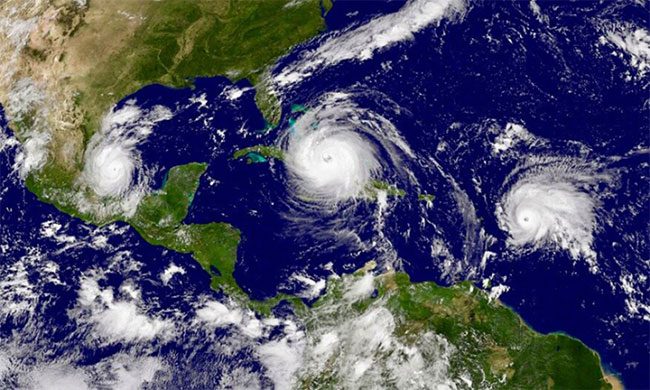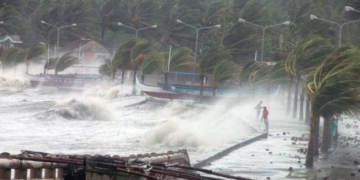According to experts at the University of Miami, attempting to cool the ocean to weaken hurricanes is highly energy-intensive and ineffective.

Satellite image showing hurricanes Katia, Irma, and Jose (from left to right) active on September 8, 2017. (Photo: National Oceanic and Atmospheric Administration (NOAA)).
A team of scientists at the Rosenstiel School of Marine and Atmospheric Science at the University of Miami found that even if humans could cool the ocean to weaken hurricanes, the benefits would be minimal, as reported by Phys on September 10. A new study published in the journal Nature Communications Earth & Environment indicates that the energy required for intervention technology before a hurricane makes landfall renders this solution very ineffective.
“According to the main findings of our study, a massive amount of artificially cooled water is needed to slightly reduce hurricane intensity before landfall. Moreover, slight weakening of the hurricane does not necessarily mean that damage on land will also decrease,” said James Hlywiak, the lead author of the study.
“It is beneficial for hurricanes to weaken before making landfall. However, the reasons mentioned above suggest that it is more reasonable to focus on adaptation strategies such as strengthening infrastructure, improving evacuation efficiency, and enhancing hurricane detection and forecasting technology,” Hlywiak added.
In this recent study, the team of experts combined theories of air-sea interaction with complex atmospheric computer models. In their computer simulations, they cooled ocean areas up to 260,000 km2 (equivalent to 21,000 km3 of water) by about 2 degrees Celsius. Even with the largest cooling area, the simulated hurricanes only weakened by 15%. The energy required to achieve this slight reduction is more than 100 times the total energy consumption of the entire United States in 2019.
“Ideas aimed at hurricane modification frequently appear in the media, and patents are even filed for them every few years,” said David Nolan, an atmospheric science professor at the University of Miami and a member of the research team. However, the new research results indicate that trying to weaken hurricanes is almost meaningless.


















































